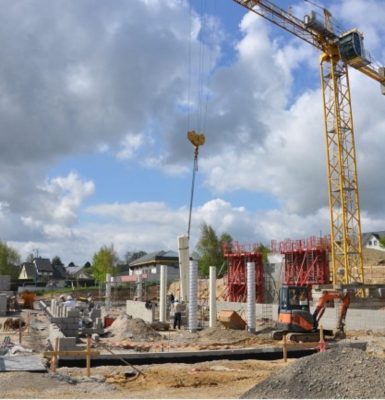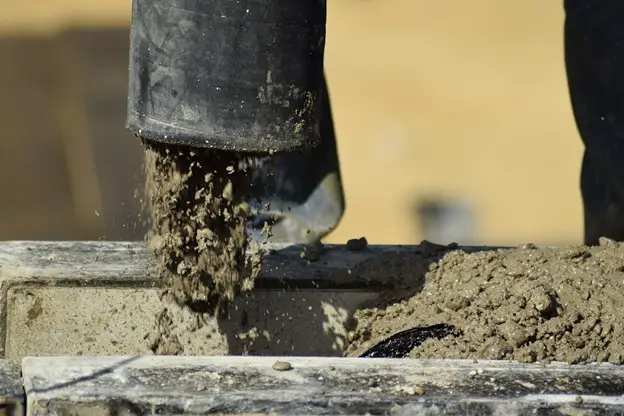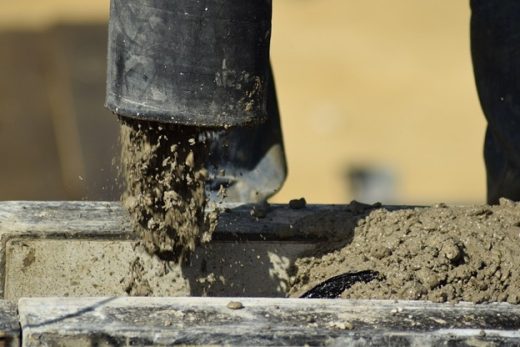Benefits of concrete in construction, Building industry material, Building cement guide
5 Benefits of Concrete in Construction
8 Jan 2023
Concrete is a solid, versatile, cost-effective building material with a very long service life, making it an invaluable asset to the construction industry.
It is composed of cement and aggregate materials such as sand, gravel, and water, making it a zero-waste option that is easy to produce locally and in large quantities for any project size.
Even structural steel contractors will tell you concrete can be adapted to suit almost any application, from large-scale infrastructure projects like bridges and stadiums to smaller-scale residential constructions.
Its ability to withstand high pressure makes it ideal for retaining walls, roads, and pavements. At the same time, its durability ensures many years’ worth of use even in extreme weather conditions such as hurricane-force winds and intense snowfall.
As a resourceful, reliable, and sustainable option, concrete will remain a go-to material for construction projects worldwide.
When Was Concrete First Used?
Concrete has been around for centuries, but its first documented use dates back to the late 13th century in what is now known as Pozzuoli, Italy.
The earliest evidence of this so-called ‘volcanic tuff,’ a type of volcanic rock commonly used in concrete, was discovered near ancient Roman ruins. From here, the material spread worldwide and was used to construct architectural feats such as seawalls, buildings, and roads.
Even today, concrete remains a beneficial material for large-scale construction projects. Although the exact date of when concrete usage started may remain a mystery to some degree, it’s been a part of civilization since at least the late 13th century!
How is Concrete Beneficial For Construction
From driveways to skyscrapers, concrete can create virtually any imaginable structure. Let’s explore the excellent benefits of concrete in construction.
Durability
The most obvious benefit of using concrete in construction is its durability. It’s strong enough to withstand the strain of everyday use and resistant to many environmental factors like water, heat, cold, and wind.
Homeowners like to google “asphalt repair services near me” to find permanent people who can best utilize this material for their benefit, as it offers a cost-effective solution for driveways and pathways. Concrete’s low maintenance requirements and long lifespan make it a popular choice for enhancing the durability and aesthetic appeal of outdoor spaces.
In addition, concrete does not rust or rot over time as some other building materials would. This makes it ideal for long-term and short-term projects since it will last through extended use and extreme conditions with minimal maintenance required.
Cost-Effective
Another great benefit of using concrete in construction is its cost-effectiveness. Concrete is relatively inexpensive compared to other materials such as steel or wood. It also requires less labor and fewer resources overall during construction due to its ease of installation and lack of additional components needed for assembly (like nails or screws).
This means you can save money on your project while utilizing high-quality material that will stand up over time.
Versatility
One of the significant benefits of using concrete in construction is its versatility. It can be shaped into nearly any form imaginable—from driveways and patios to stairs and columns—ensuring that your project looks how you envision it without compromising on design or functionality due to limitations in materials.
Additionally, it can be colored or textured to better match the aesthetics you are trying to achieve with your project.
Convenience
Another benefit of using concrete in construction is its convenience. Unlike other materials such as wood or metal, which require specialized tools and techniques to work with them properly, working with concrete is relatively straightforward. It doesn’t require any special knowledge or skill set.
As long as you have the right tools (such as mixers or a concrete bucket) and follow safety precautions when pouring the material, you can easily install concrete yourself with minimal effort.
Speed & Efficiency
Finally, one of the most significant advantages of using concrete in construction is its ability to reduce the time required for a project’s completion.
Since concrete sets quickly, once mixed with water and applied correctly, large amounts can be poured at once instead of having to construct individual components separately over some time.
Additionally, since minimal finishing touches are required after pouring concrete—such as smoothing out imperfections or applying sealants—it dramatically reduces the labor costs associated with traditional methods such as bricklaying or carpentry work.
Conclusion
Concrete offers numerous advantages when used as a building material for any structure—from residential homes to commercial buildings— thanks to its flexibility and affordability when compared with other traditional materials such as wood or steel.
Its incredible strength ensures that structures built with this versatile material will last for generations without requiring intensive repairs or maintenance, making it an excellent choice for any construction project!
Whether you are looking for some basic constructions or more complex, Concrete Contractors Rockville MD ensures that your vision becomes a reality without breaking the bank.
Comments on this Benefits of Concrete in Construction are welcome
Construction Concrete
New vaulted style of floor cuts concrete usage
How Investing in Precast Concrete Can Benefit Your Business
How to pour a concrete patio guide
UK Construction News
New UK Construction
UK Construction Industry recovery news
UK Construction Industry recovery
New Construction Output Increase Comment

image courtesy of article provider
UK Construction Industry recovery news
How will Construction Industry respond to Brexit?

How will Construction Industry respond to Brexit?
Property Design
Contemporary Property Designs – recent architectural selection:
Comments / photos for the 5 Benefits of Concrete in Construction page welcome






